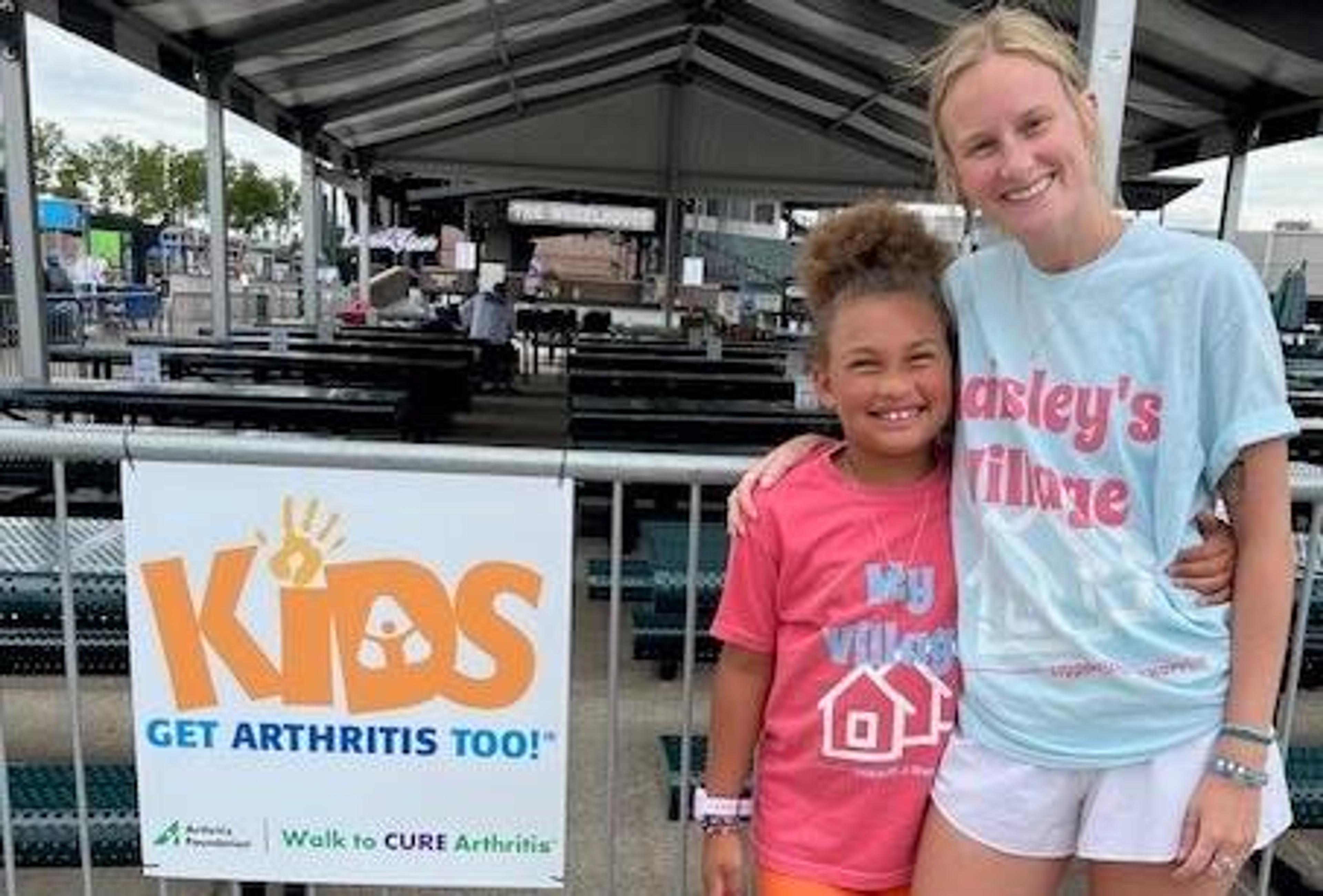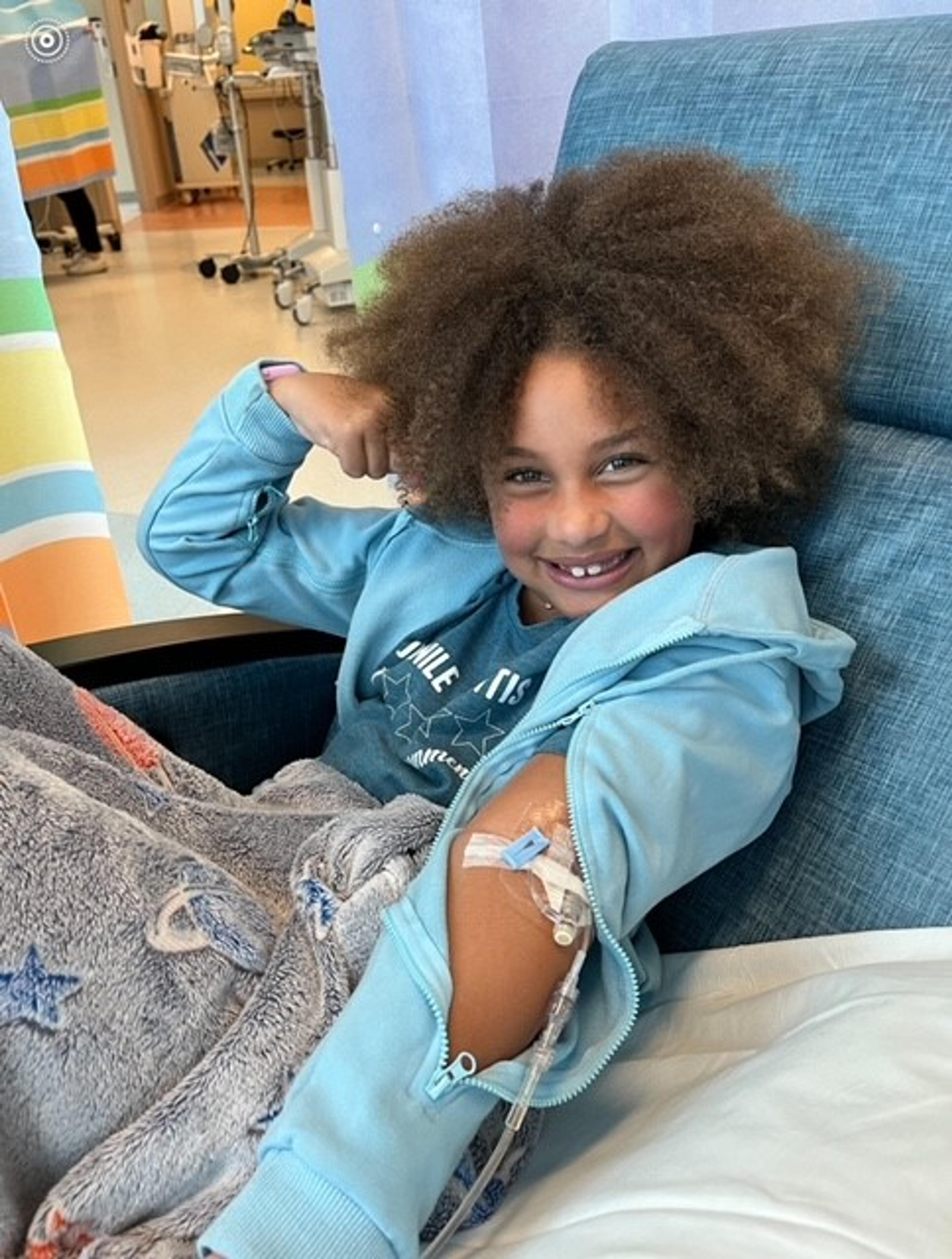‘It’s Not Something That Has to Stop Them:’ Grand Rapids Mother Discusses Daughter’s Tumultuous Journey with Juvenile Arthritis, Offers Advice to Others
Jake Newby
| 5 min read

You wouldn’t know it by her bubbly demeanor, but Grand Rapids 8-year-old Paisley Trotter has endured a lot of pain in the last three years since being diagnosed with Juvenile Idiopathic Arthritis (JIA).
“She has such a kind heart, and she makes connections with people everywhere we go,” said Paisley’s mother, Taylor Trotter. “Just with little comments like, ‘I like your purse,’ or ‘I like your hat.’ She’s just such a special kid. She enjoys bringing people together.”
Paisley’s symptoms appeared about three years ago. What was thought to be a relatively harmless swollen toe for Paisley turned into something much more serious.
“It got really difficult to get her into socks and shoes because her feet were constantly in pain,” Trotter said. “It was worst in the morning. When she started to walk on the outside of her feet that’s when I knew it was more than just foot pain.”
A rheumatologist diagnosed Paisley with JIA around the time she was 6 years old.

“Her doctors said they needed to take aggressive treatment right away,” Trotter said. “After that appointment I had to start giving her two injections every week at home. That was a complete lifestyle change … as a 5 or 6-year-old starting to get shots every week, you know, kids don’t like to go to the doctors because of shots. Now, this was me being the bad guy having to do it every week at home.”
Paisley anti-rheumatic medication was designed to reduce symptoms of joint damage and treat autoimmune diseases. After one year of treatment, Paisley’s doctors diagnosed her with Crohn’s disease. It’s not uncommon for cases of Crohn’s – a type of inflammatory bowel disease (IBD) – and arthritis sometimes tend to exist together. Arthritis, or inflammation (pain with swelling) of the joints, is the most common extraintestinal complication of IBD, according to the Crohn’s & Colitis Foundation, which states that although arthritis is typically associated with advancing age, in IBD it often strikes younger patients as well.
“Once she was diagnosed with Crohn’s diagnosis, the way I kind of explained it to people is, her immune system is fighting itself everywhere, it just presents itself differently in different parts of her body,” Trotter said. “So, in her joints, it presents as arthritis. In her digestive system, it presents itself as Crohn’s disease.”

From there, Paisley’s immune system weakened even further. Trotter empowered Paisley to take some autonomy over her treatment, which led to fewer shots and the introduction of infusion therapy every six weeks.
“Once she started infusions and got that second diagnosis, this past year has been really rough,” Trotter said. “She’s been in the hospital twice for sickness and she missed 40% of school each of the past two semesters. A typical kid will get sick for two or three days, but she’ll get sick for a week or a week and a half to two weeks.”
As Paisley continues to fight, she’s also found ways to cope with her condition.
“She has really taken initiative in paying attention to the doctors at appointments, asking questions, being honest about her pain and trying to learn her medication,” Trotter said. “She loves to help with her infusions saying, ‘this is where I want it, this is how I like it done.’ She likes to help tape and untape. The more that she learns about it, the more she’s like, ‘OK, now I know why I’m doing these things, this is how I can help myself.’”
The power of support groups and connection
The Arthritis Foundation has been a game-changing resource for Paisley and Trotter alike. The past three years have taken a huge mental toll on Trotter as a mother, but she’s found solace in connecting with mothers who have walked in her shoes through the Arthritis Foundation.
“Our kids are on their journey with their diagnosis, and we are on their journey, but in a way, we are also on our own journey as caregivers of kids with chronic illnesses,” Trotter said. “It’s almost like two journeys. I’d say having other people go through it who understand has been a big thing. As much as I have my village who support us, they don’t truly understand what I’m going through, so having those people that can sit with me and say, ‘this sucks, today is a bad day, I know exactly how you feel but here’s how we can get through it and move forward.’”

At the National Juvenile Arthritis Family Summit last year, Paisley met another child with JIA for the first time. Similarly to the unique connection Trotter made with parents, Paisley’s connections have helped her realize she is not alone.
“They can FaceTime each other, they send each other videos and say, ‘this is what helps me during my shots,’ or ‘this is what I like to do during my infusions and how it helps me,’” Trotter said. “I’d say advocating has kind of set a fire under me. Through social media I’ve met parents and connected with them to talk about my experience and my journey and Paisley’s journey to help them through theirs, as well.”
At this year’s Juvenile Arthritis Family Summit, Trotter will co-chair a mom’s female caregiver’s group.
“I’m just so passionate about advocating and helping based on the thing we’ve learned on this almost three-year journey so far,” Trotter said.
When it comes to advice and parenting tips for moms and dads also navigating a JIA diagnosis to their child, Trotter said transparency is key.
“It’s not something that has to stop them. They have this diagnosis, and as much as we are their advocates they need to learn to be their own advocates because that’s going to help them cope and move forward,” she said. “Talking about it helps build resiliency in kids and their confidence. It empowers them to talk about it. It’s, ‘hey, this is what makes me different but it’s not going to stop me from doing what other kids do.’”
Keep reading on AHM:
Photo credit: Taylor Trotter





